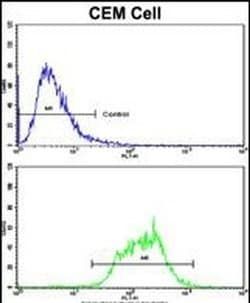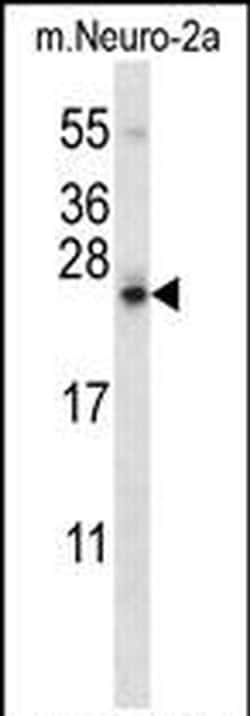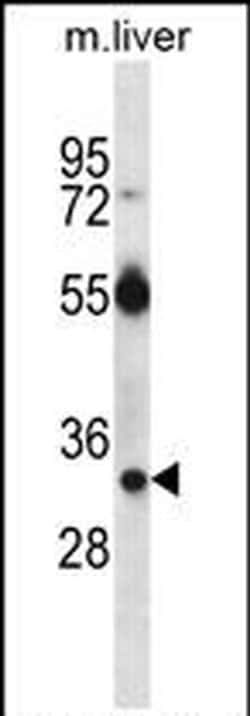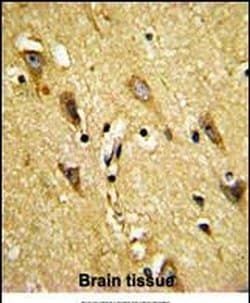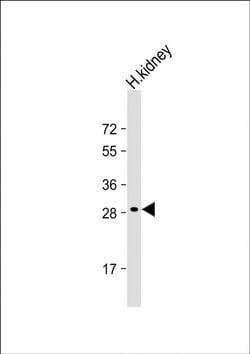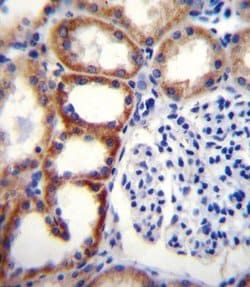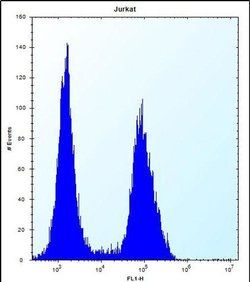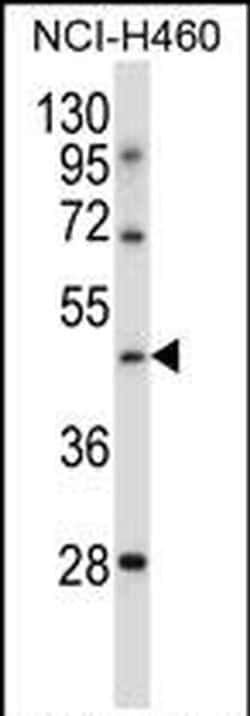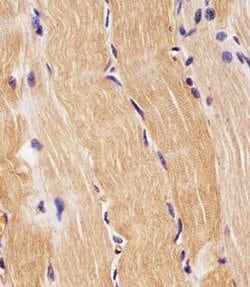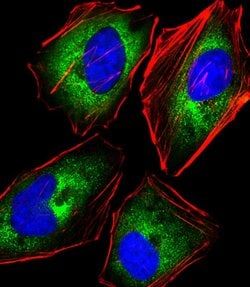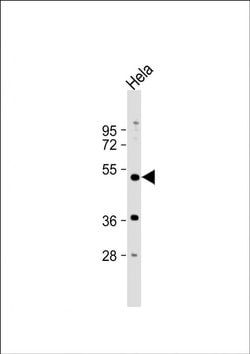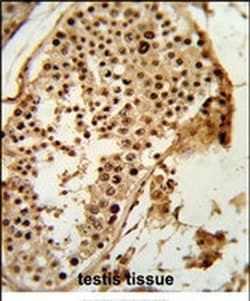PRODH Polyclonal Antibody, Invitrogen™
Manufacturer: Thermo Scientific
Select a Size
| Pack Size | SKU | Availability | Price |
|---|---|---|---|
| Each of 1 | PIPA572540-Each-of-1 | In Stock | ₹ 46,057.50 |
PIPA572540 - Each of 1
In Stock
Quantity
1
Base Price: ₹ 46,057.50
GST (18%): ₹ 8,290.35
Total Price: ₹ 54,347.85
Antigen
PRODH
Classification
Polyclonal
Conjugate
Unconjugated
Gene
Prodh
Gene Alias
HSPOX2; p53-induced gene 6 protein; PIG6; POX; POX2; Pro1; Pro-1; Prodh; PRODH 1; PRODH 2; PRODH1; PRODH2; proline dehydrogenase; proline dehydrogenase (oxidase) 1; proline dehydrogenase (proline oxidase); proline dehydrogenase 1; proline dehydrogenase 1, mitochondrial; proline dehydrogenase, mitochondrial; proline oxidase; Proline oxidase 2; proline oxidase, mitochondrial; SCZD4; TP53I6; tumor protein p53 inducible protein 6; Ym24d07
Host Species
Rabbit
Purification Method
Protein A
Regulatory Status
RUO
Gene ID (Entrez)
19125, 5625
Content And Storage
Store at 4°C short term. For long term storage, store at -20°C, avoiding freeze/thaw cycles.
Form
Liquid
Applications
Flow Cytometry, Immunohistochemistry (Paraffin), Western Blot
Concentration
0.5 mg/mL
Formulation
PBS with 0.09% sodium azide
Gene Accession No.
O43272, Q9WU79
Gene Symbols
Prodh
Immunogen
KLH conjugated synthetic peptide between 130-155 amino acids from the Central region of human PRODH
Quantity
400 μL
Primary or Secondary
Primary
Target Species
Human, Mouse
Product Type
Antibody
Isotype
IgG
Description
- The protein encoded by this gene is a mitochondrial proline dehydrogenase that catalyzes the first step in proline degradation
- Defects in this gene are a cause of hyperprolinemia type 1 and possibly susceptibility to schizophrenia 4 (SCZD4)
- The gene is located on chromosome 22q11.21, a region which has also been associated with the contiguous gene deletion syndromes DiGeorge syndrome and CATCH22 syndrome.
